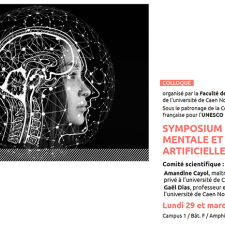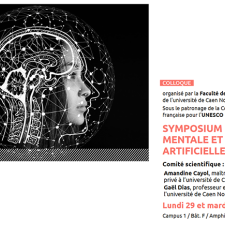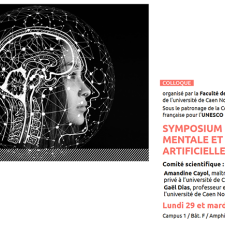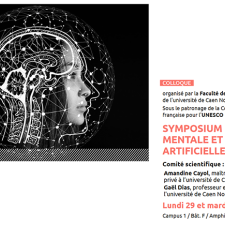Notice
The stressors-performance relationship in public accounting firms : A longitudinal study-PUDD
- document 1 document 2 document 3
- niveau 1 niveau 2 niveau 3
Descriptif
This study aims to examine the causal nature of the suggested correlations between stressors and performance in accounting and auditing firms. Design: A longitudinal study of the relationships between role stressors and performance of 71 chartered public accountants and trainee-chartered accountants surveyed before and after the fiscal period has been conducted using the partial least squares approach. Findings: The variation of stress arousal is positively associated with the variations of role conflict and overload, but not with the variations of role ambiguity and stress arousal. The variation of burnout arousal is positively related to the variation of stress arousal and, unexpectedly, performance. Practical implications: To improve the performance and well-being of accounting and auditing firm employees during the fiscal period, it appears preferable to give employees and partners less tasks difficult or impossible to accomplish together by hiring and specializing employees. Originality: This longitudinal study provides an original explanation for the phenomena reported in cross-sectional studies and makes three contributions: (1) it suggests a central role during a fiscal period of stress arousal as a mediator of the effects of two role stressors on performance and well-being, (2) the comparison with previous studies’ finding suggest the generalizability of some conclusions over time and across space, and (3) the majority of the control variables have no significant relationship with the variables of interest.
Intervention / Responsable scientifique
Sur le même thème
-
Agroforesterie, bien-être et santé mentale
Le CadreÉdithÉdith Le Cadre, professeure à l'Institut Agro Rennes-Angers, discute dans cette vidéo de la relation entre santé mentale des agriculteurs et agricultrices et agroforesterie.
-
Dis-moi comment tu parles
LenartEwaLamalle CabarrusAurélieDiakiteEdwigeNguyenMinh TheAmmariLilaCe film a été réalisé dans le cadre de la recherche-action "le plurilinguisme à l'école primaire : valoriser les langues d'héritages pour une école et une société inclusives" Avec l'aimable
-
Santé Live #12 : Sport Santé Bien-Être
RachouEmmanuelleHoareauVincentSanté Live #12 : Sport Santé Bien-Être
-
L'exploration mentale #1 - Le mental, qu’est-ce que c’est ?
LacroixÉricPorlierChristopheLes Causeries du Sport - L'exploration mentale #1 - Le mental, qu’est-ce que c’est ?
-
L'exploration mentale #2 - Résilience et Coping
LacroixÉricPorlierChristopheLes Causeries du Sport - L'exploration mentale #2 – Résilience et Coping : Comment les sportifs surmontent-ils les échecs et relèvent-ils les défis ?
-
Disposer de données de cadrage pertinentes pour aborder la santé mentale des élèves -PUDN
GodeauEmmanuelleL’Enquête nationale en collèges et en lycées chez les adolescent.e.s sur la santé et les substances (EnCLASS) est une enquête transversale répétée tous les 2 ans depuis 2018 Matériels et méthodes De
-
EnCLASS, un projet national adossé à deux enquêtes internationales (HBSC et ESPAD) - PUDN
GodeauEmmanuelleSpilkaStanislasSentenacMarianeL’Enquête nationale en collège et en lycée chez les adolescents sur la santé et les substances (EnCLASS) est née en 2018 de la fusion de deux enquêtes internationales menées en milieu scolaire...
-
L’acceptabilité sociale de l’IA en santé mentale
ConstantinidèsYannisLes conditions d’une véritable approbation sociale ne seront pas réunies tant qu’une évaluation précise des avantages et inconvénients de l’IA appliquée à la santé mentale n’aura pas été menée.
-
Mental health disorder identification from motivational conversations
SahaSriparnaEst ici présenté un classificateur de réseau neuronal profond hiérarchique basé sur l'attention pour modéliser les conversations afin de détecter différents troubles mentaux au fur et à mesure que le
-
Apprentissage multitâche pour la détection dans les dialogues
AmblardMaximePrésentation d’une étude visant à détecter les signaux de dépression dans les dialogues.
-
Pour un encadrement éthique de l’IA en santé mentale
GrandazziGuillaumeGouriotMylèneLes applications de l'intelligence artificielle dans le domaine de la santé mentale présentent divers avantages potentiels, mais elles engendrent également des risques et suscitent de nombreuses
-
Psychiatrie prédictive et préventive : différents projets de la FHU A²M²P
DiasGaëlPrésentation notamment de l'estimation automatique du niveau de dépression grâce à l’étude des données issues d’entretiens cliniques.













